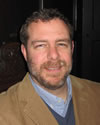a discussion with Professors
Michael W. Clune & Lee Hoffer
Monday, September 29 4:15-5:45 p.m.
Clark Hall Room 309
Is there a new heroin epidemic?
What is new about it?
What are its consequences?
Why is it happening?
From Rolling Stone to The Christian Science Monitor; WKYC Cleveland to CWRU’s Observer, reports tell us that heroin has become more common and a major killer. Cory Monteith and Philip Seymour Hoffman are highly publicized, “sentinel” cases. But overdoses killed 195 people in Cuyahoga County in 2013 – up from 40 in 2007, and more than the deaths from homicide or vehicle accidents.
Heroin use is both personal and social. Lee Hoffer, Associate Professor of Anthropology, studies the social world of illicit drug use. Among his works is Junkie Business: The Evolution and Operation of a Heroin Dealing Network. Associate Professor of English Michael Clune’s searing memoir of his own addiction, White Out: The Secret Life of Heroin, was chosen as one of the best books of 2013 by The New Yorker and NPR’s On Point. Join them for a broad discussion of the puzzles and issues raised by heroin’s presence in modern life.
About Our Guests
 Michael W. Clune is an associate professor in the department of english at Case Western Reserve University. He specializes in American literature, literature and science, and poetry. His work investigates two basic questions: What difference does literature make? What methods might best illuminate that difference in the context of the modern research university? His first book, American Literature and the Free Market (Cambridge University Press, 2010), examines how postwar writing from Frank O’Hara’s poetry to nineties gangster rap takes on social power by offering an escape from society.
Michael W. Clune is an associate professor in the department of english at Case Western Reserve University. He specializes in American literature, literature and science, and poetry. His work investigates two basic questions: What difference does literature make? What methods might best illuminate that difference in the context of the modern research university? His first book, American Literature and the Free Market (Cambridge University Press, 2010), examines how postwar writing from Frank O’Hara’s poetry to nineties gangster rap takes on social power by offering an escape from society.
His second book, Writing Against Time (Stanford University Press, 2013), explores the effort to create an image immune to the erosive effects of neurobiological time. Elements of this project have appeared in the journals Representations, Criticism, and Behavioral and Brain Sciences.
Clune’s first work of creative nonfiction, White Out, was chosen as a Best Book of 2013 by The New Yorker, NPR’s “On Point,” The Millions, and other venues. His second memoir, Gamelife, on computer games as spiritual education, is forthcoming from Faber & Faber/FSG in fall 2015. He is at work on a series of articles on what literature knows.
 Lee D. Hoffer is an associate professor in the department of anthropology at Case Western Reserve University. Dr. Hoffer’s research focuses on understanding the political, social, cultural, and clinical contexts related to illicit drug use. This work has informed a range of topics, including; HIV risk behaviors of drug injectors, diagnostic nosology for substance use disorders, understanding trends in drug use, as well as drug policy and intervention studies. More recently, Dr. Hoffer’s research examines how illicit drug markets, and the acquisition of drugs, influences users behaviors and negative health outcomes. In 2000, Dr. Hoffer conducted an eighteen month ethnographic case-study of a heroin dealing network in Denver, Colorado. This fieldwork focused on the dealer’s business operations; transactions with customers; the interaction between addiction and drug acquisition; social and economic exchange relationships; as well as, characterizing the history of the local heroin market.
Lee D. Hoffer is an associate professor in the department of anthropology at Case Western Reserve University. Dr. Hoffer’s research focuses on understanding the political, social, cultural, and clinical contexts related to illicit drug use. This work has informed a range of topics, including; HIV risk behaviors of drug injectors, diagnostic nosology for substance use disorders, understanding trends in drug use, as well as drug policy and intervention studies. More recently, Dr. Hoffer’s research examines how illicit drug markets, and the acquisition of drugs, influences users behaviors and negative health outcomes. In 2000, Dr. Hoffer conducted an eighteen month ethnographic case-study of a heroin dealing network in Denver, Colorado. This fieldwork focused on the dealer’s business operations; transactions with customers; the interaction between addiction and drug acquisition; social and economic exchange relationships; as well as, characterizing the history of the local heroin market.
This research is detailed in his book Junkie Business: the Evolution and Operation of a Heroin Dealing Network (Thompson-Wadsworth Press, 2006). His on-going research involves synthesizing agent-based computational modeling techniques and ethnographic research to develop new tools for policymakers and researchers. Borrowing from theories of Complexity Systems, these projects seek to connect the rich descriptive detail offered by anthropology with the epidemiology of drug abuse.
From 1997-1999 Dr. Hoffer was Colorado’s representative to NIDA’s Community Epidemiology Workgroup. He was also active in the Colorado Department of Public Health and Environment and the Centers for Disease Control and Prevention (CDC) HIV community planning efforts. From 2002-2005 he trained as a (T32) NIDA post-doctoral fellow in psychiatric epidemiology at Washington University School of Medicine, Epidemiology and Prevention Research Group (EPRG), mentoring with Dr. Linda Cottler. His research is supported by grants from the National Institutes of Health, National Institute of Drug Abuse, as well as, The National Science Foundation (Cultural Anthropology & Methods, Measurement, and Statistics program).





